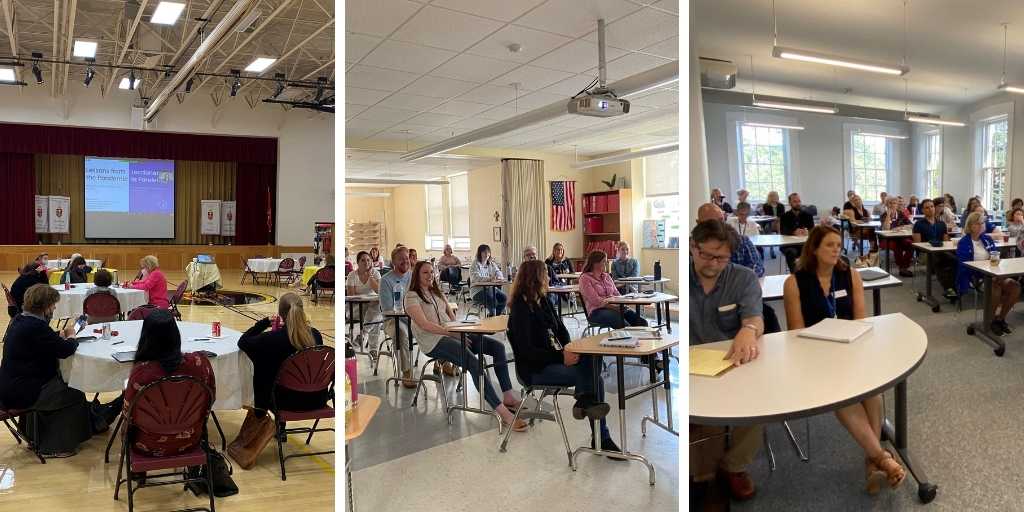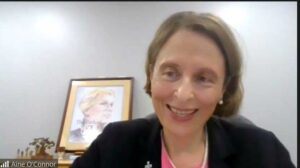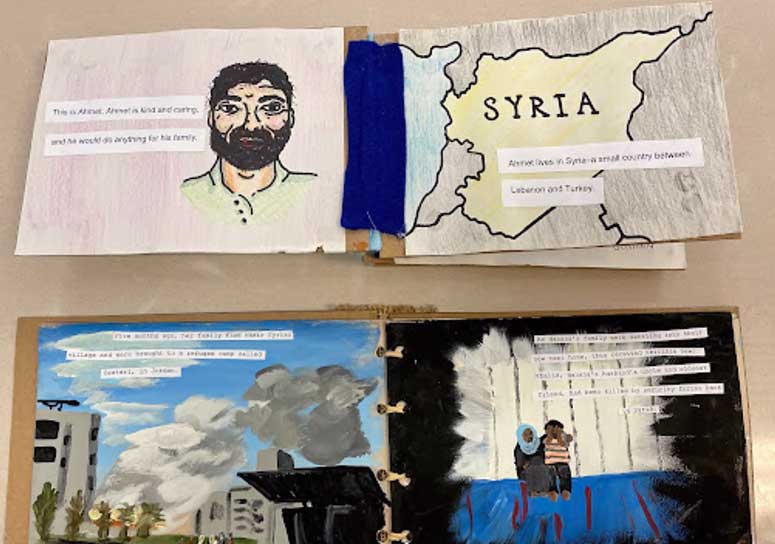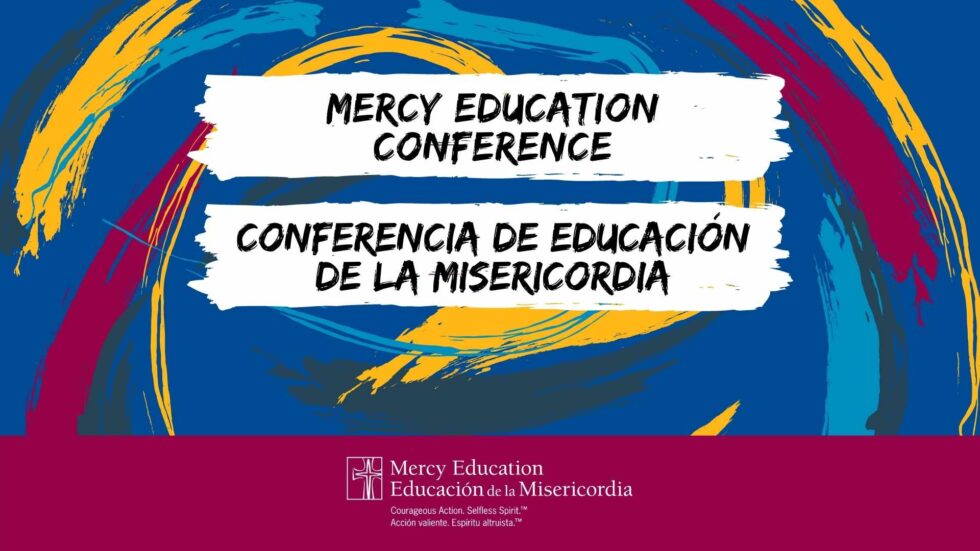By Jason Giovannettone, Director of Climate and Sustainability for the Sisters of Mercy Step 3:…
39th Annual Mercy Education Conference Welcomes Record Number of Participants in Virtual Format
The 39th annual Mercy Education Conference, held virtually on October 13-14, 2021, gathered over 1,000 participants in Argentina, Belize, Guam, Honduras, Jamaica, the Philippines, and the United States.
“The virtual format presented some challenges,” said Kimberly Baxter, Associate Director of Programs and Services for Mercy Education. “Technology and time zones, to name a few. Yet it was thanks to this virtual format that the planning committee was able to bring together such a large swath of our Mercy Education community, something that would have been impossible in-person.”
Designed as a time for renewal and reflection, the 2021 Mercy Education Conference holistically addressed the work of Mercy educators through the lens of the five Critical Concerns of the Sisters of Mercy. Many participants gathered safely in groups within their school communities to engage in the sessions and discuss their takeaways. Enthusiastic conversation in the virtual chat box made clear the camaraderie felt across the 55 member schools of Mercy Education.

Two Years Later
Sister Lisa Griffith, Executive Director of Mercy Education, opened the conference reflecting on the global crises that have emerged since the last Mercy Education Conference, held in Oklahoma City, Oklahoma, in 2019. “In some ways it seems these past two years have only been filled with trial and tribulation,” she said. “But, as women and men of Mercy we know this is not true. Each of you, each of our Mercy schools have continued to bring mercy, love, and joy into our world. Mercy has been redefined, literally and figuratively.”
Listening to Voices of Mercy and Hope

Keynote speaker Sister Áine O’Connor, a member of the Sisters of Mercy Institute Leadership Team, inspired participants with her presentation, “Living Mercy, Living Hope.” The dynamic multimedia experience began with a focus on listening to voices on the COVID-19 pandemic; the climate emergency; displacement of persons; racial violence and injustice; and violence, discrimination, and hate. Through this deep listening, participants gleaned elements of mercy and hope. “Pay attention to which elements draw you in,” Áine encouraged. “Invite them anew into your world and daily consciousness. As Mercy educators, explore their application in addressing the Critical Concerns, and the interlocking nature of these concerns, over the coming year.”
Inspiration and Education
Participants dove into the challenges of educating the iGen, or “internet generation,” with Amie Konwinski, founder and CEO of Smart Gen Society. Her candor in discussing digital pitfalls and dangers helped educators better empathize with the issues students face online and more confidently address these issues when they impact students’ reputation and safety.
Rachel Dowell, Dean of Curriculum at Mount St. Mary Catholic High School in Oklahoma City, Oklahoma, led an interactive session entitled “Lessons from the Pandemic.” She reminded participants about the added trauma being carried by each person because of the COVID-19 pandemic and analyzed the impact of that trauma being witnessed in our schools. Educators reflected on how the pandemic has exacerbated challenges at their school and brainstormed possible solutions.

How do we take better care of ourselves in order that we can better nurture the youth in our care? This was the question posed to participants by Amanda Ables, Director of Community Wellness and Learning Differences at Mercy Academy in Louisville, Kentucky. She discussed burnout and its implications and encouraged educators to think about how to intentionally incorporate self-care to promote overall well-being.
Colleen Swain, Leadership Development and Advocacy Associate with Mercy International Association, Mercy Global Action, and Ryan McGoron, Social Studies Department Chair at Mercy High School in Burlingame, California, offered participants perspectives on project-based learning. Colleen focused on the Mercy Justice Advocacy Approach as a framework for project-based learning to help students understand the oppressive systems underlying the Mercy Critical Concerns and engage in developing solutions around world global issues. Ryan shared examples of how project-based learning can be applied in the classroom, emphasizing the importance of an action component. “If you give students opportunities to show their creativity and choice, you get amazing results,” he said.
Closing Notes
The 39th annual conference concluded with the new trilingual “The Circle of Mercy” created by Colegio Santa Ethnea – watch it here. Kimberly Baxter closed the conference exclaiming, “What a blessing it is to be part of the Mercy Education community!”
Information will be shared in the coming months about plans for the 2022 conference. If you have any questions about the conference, please contact mercyedu@sistersofmercy.org.
Mercy Education is grateful for the service of the Mercy Education Conference Committee:
- Kimberly Baxter, Associate Director of Programs and Services, Mercy Education
- Whitney Faires, Vice Principal, Mount St. Mary Catholic High School, Oklahoma City, Oklahoma
- Anne Knapke-Committee Chairperson, Principal, Gwynedd Mercy Academy Elementary, Spring House, Pennsylvania
- Holly McCoy, Vice Principal, Mercy High School, Omaha, Nebraska
- Maria Mutidjo, Dean of School Culture and Communication, Convent of Mercy “Alpha” Academy, Kingston, Jamaica
- Nell Stetser, Associate Director for Online Learning, Mercy Education




